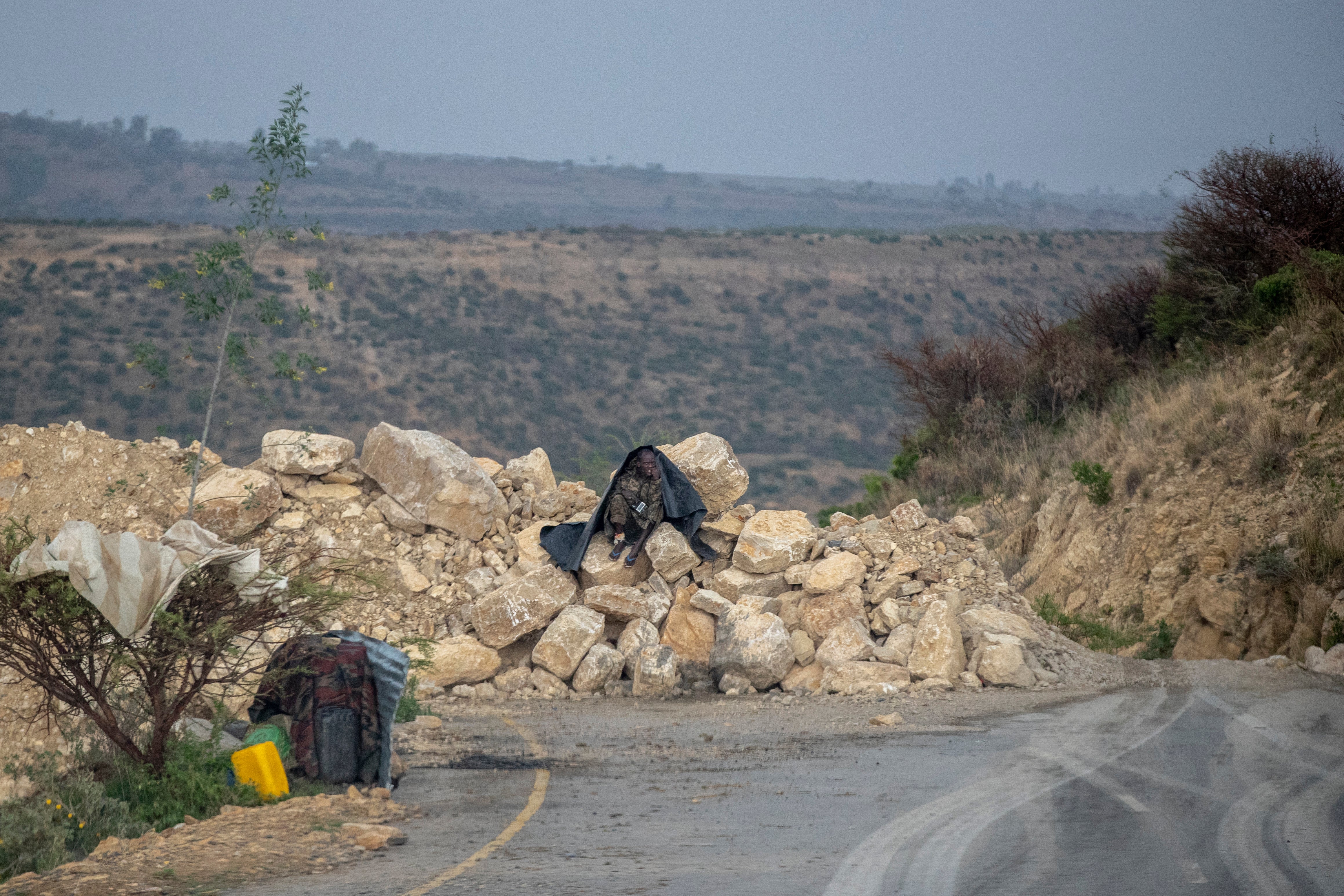'I cannot escape': New abuses alleged in Ethiopia's Tigray
New witness accounts allege that thousands of ethnic Tigrayans have been forcibly expelled, detained or killed in one of the most inaccessible areas of Ethiopia’s yearlong war in the latest wave of abuses carried out with machetes, guns and knives

New witness accounts allege that thousands of ethnic Tigrayans have been forcibly expelled, detained or killed in one of the most inaccessible areas of Ethiopia’s yearlong war in the latest wave of abuses carried out with machetes, guns and knives.
Following a report by The Associated Press early last month citing people who fled, Thursday’s joint statement by Human Rights Watch and Amnesty International is based on interviews with more than 30 witnesses and relatives. It comes ahead of a U.N. Human Rights Council session Friday on Ethiopia whose government objects to what it considers meddling by the West over the war that has killed tens of thousands of people.
“They said they will not be responsible for any beating and killing that would happen to us if we fail to go,” one witness told the AP late last month, saying even people who are part Tigrayan like him are targeted. Like others, he spoke on condition of anonymity for fear of retaliation.
“I cannot escape anywhere,” he said, noting the many checkpoints surrounding the western Tigray region. “There is no way out of this trap.”
Ethnic Tigrayans have been targeted throughout the conflict as Ethiopian and allied forces battle the Tigray fighters who long dominated the national government before Prime Minister Abiy Ahmed took office three years ago. Some of the worst abuses have been reported in the western Tigray region, which has been occupied by authorities and fighters from the neighboring Amhara region and soldiers from neighboring Eritrea.
The latest alleged abuses appear to be linked to the Tigray forces’ recent momentum, which Ethiopia’s government asserts has been blunted after the prime minister, a Nobel Peace Prize winner and former soldier, went to the battlefront himself. Witnesses told the AP that authorities in western Tigray warned in public meetings against supporting the Tigray fighters, who themselves have been accused of a growing number of abuses in the war.
The new joint statement by Human Rights Watch and Amnesty International says Amhara security forces are responsible for the latest wave of expulsions, detentions and killings, and it warns that Tigrayans in detention are “at grave risk.” It says security forces systematically rounded up Tigrayans in the communities of Humera, Adebay and Rawyan, separating families and expelling women and children.
“They separated the old from the young, took their money and other possessions. ... Older people, parents were loaded on big trucks (going) east. They let them go with nothing, while the young remained behind,” one witness in Rawyan told the human rights groups. In Humera, witnesses described seeing as many as 20 trucks carrying people away. It’s not often clear where they are taken.
“They said they will send the pure Tigrayans first and then send those are half Tigrayans,” one western Tigray resident told the AP.
“Tigrayans disappear all the time these days,” a Humera resident told the AP. “There is no way of finding out who took them, or where they are being kept or whether they are alive or not.” He asserted that different detention centers are run by Ethiopian, Eritrean and Amhara forces.
A spokesman for the Amhara region, Gizachew Muluneh, in a statement rejected the allegations as “totally groundless and unjustifiable. First of all, there is no place called western Tigray in Amhara region” — underlining the claim that Amhara authorities are simply retaking land they see as theirs. He also urged the international community to investigate alleged widespread abuses by Tigray forces against civilians in the Amhara region.
The United Nations has estimated that 20,000 people were recently evicted from western Tigray, most of them women, children and the elderly. The U.N. has said more than 1 million have been displaced from there since the war began in November 2020.
But not all can leave. Witnesses have alleged that hundreds, if not thousands, of Tigrayans are held in makeshift, overcrowded detention centers in western Tigray, part of thousands being held elsewhere across Ethiopia amid suspicions fueled by hate speech by some senior government officials. The government has said it is targeting only the Tigray forces.
One detainee in Humera told the human rights groups he escaped last month while loading the bodies of fellow detainees onto a tractor, and asserted that he knew of at least 30 people who died in detention.
“They couldn’t handle the torture, that’s why they were dying,” he said. Witnesses described beatings with rifle butts and electric wires along with the denial of food and medicine.
Witnesses told the AP, and the human rights groups, that some people trying to flee the roundups in Adebay were attacked and killed, with some Amhara fighters searching house-to-house with axes. “The whole town smelled” with dead bodies, one man said.
The human rights groups are calling on Ethiopian authorities to end the attacks on civilians and immediately grant access to western Tigray for aid groups. They also call on the U.N. Human Rights Council to establish an independent mechanism to investigate the war’s abuses, including by Tigray forces, and urge the U.N. Security Council to put Ethiopia on its formal agenda.
“The global paralysis on Ethiopia’s armed conflict has emboldened human rights abusers to act with impunity and left communities at risk of feeling abandoned,” Human Rights Watch’s Laetitia Bader said.
Ethiopia's government has sought to restrict reporting on the war, detaining some journalists including a video freelancer accredited to the AP, Amir Aman Kiyaro, and barring others from entering the country.
___
Follow AP stories about the war in Ethiopia at https://apnews.com/hub/Ethiopia
Bookmark popover
Removed from bookmarks